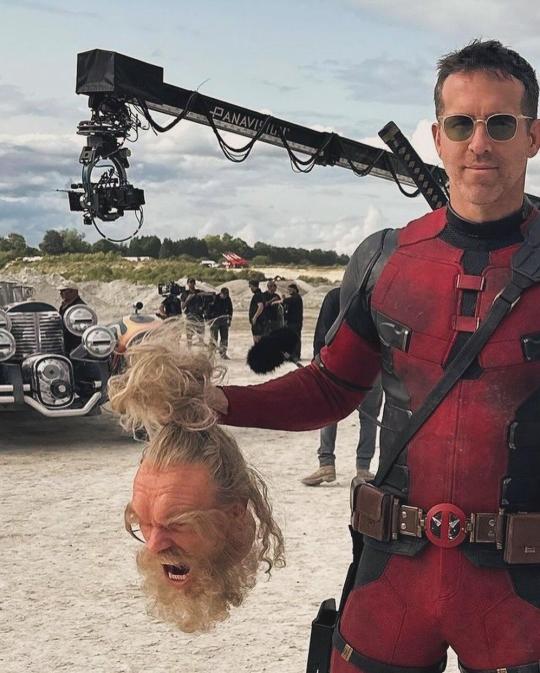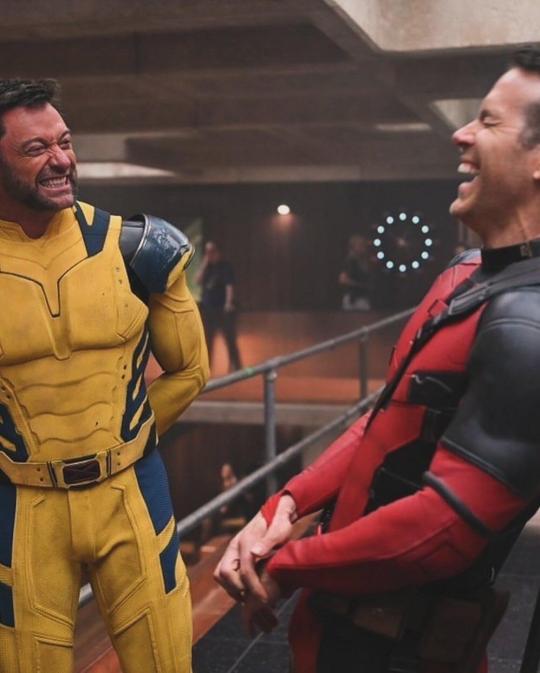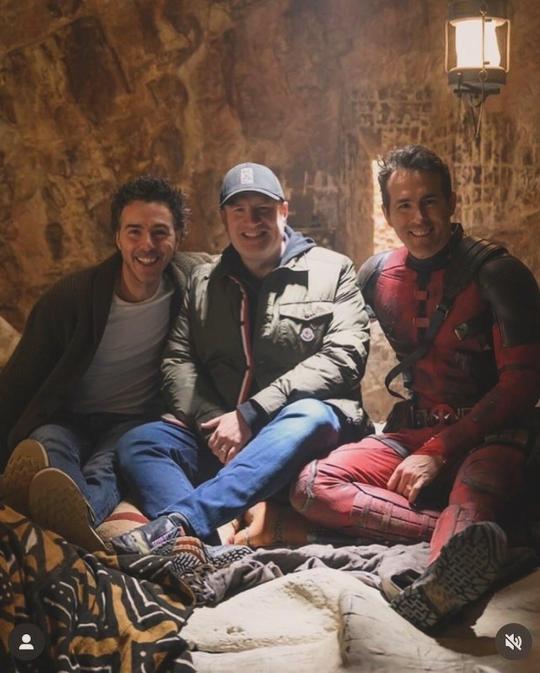#Behind-The-Scenes
Explore tagged Tumblr posts
Text
Bad food 🍔 > "Good" food 🥗
Do you agree or disagree?
9K notes
·
View notes
Text
Brennan's 1st year in LA was nearly a disaster - and then came Izzy
1K notes
·
View notes
Text
This week on Dropout: on Monday, go behind-the-scenes of Game Changer's latest episode ("Deja Vu"); on Tuesday, welcome to an all-sports Breaking News with anchors Jess Ross, Oscar Montoya, Ally Beardsley, and Ruha Taslimi; on Wednesday, get ready for the 3 hour long 17th episode of Dimension 20: Fantasy High Junior Year (don't miss it); on Thursday, a chaotic Adventuring Party talkback; on Friday, the trailer for new Dropout series, Thousandaires, and a new Very Important People with guests Rashawn Scott and Ross Bryant.

#dropout#dropout schedule#dimension 20#fantasy high junior year#very important people#don't laugh news#thousandaires#game changer#behind-the-scenes#adventuring party#intrepid heroes
663 notes
·
View notes
Text
Aabria Iyengar is back as your Game Master for season 2 of Dimension 20: Misfits & Magic! What journey will @quiddie take the Pilot Program on this season? Go to Dropout for more!
357 notes
·
View notes
Text
Go behind-the-scenes of "Deja Vu" with a new featurette out now on @dropoutdottv!
Join Sam Reich, Paul Robalino, Sam Geer, Nico Romero, Chloe Badner, Justin Cyrul, and Ash Kron as they walk you through the logistical nightmare of making Deja Vu a reality...
Watch the whole behind-the-scenes now on Dropout
529 notes
·
View notes
Text

#mishamonday #Monday #supernatural
#mishacollins #castiel
#jaredpadalecki #samwinchester
#marksheppard #crowley #behind-the-scenes
🎁
#supernatural#sam winchester#jared padalecki#castiel#misha collins#crowely#marksheppard#monday#mishamonday#behind-the-scenes
66 notes
·
View notes
Text



Behind the scenes of Deadpool and Wolverine
#deadpool and wolverine#marvel movies#Behind-the-Scenes#filmmaking#directors#movies#deadpool#wolverine#marvel
41 notes
·
View notes
Text
A Peek at My Outline Process for The One True School Master of Vault 41

The largely non-spoilery page eight of my ridiculously long outline of TOTSMOV41 (81 pages and counting but with a lot of blank gaps and strange formatting). I don't know if anyone is interested, but essentially, this is an idea of what my inordinately-wordy brain-dump process looks like, usually before I settle on exact phrasings and flesh out scenes, and believe it or not: this is one of the cleaner pages.
And keeping things in chronological order is such a pain, haha. Serves me right because I started drafting chaotically in draft emails before I ever opened a proper Google doc. And I still haven't broken the habit, so now, I have an insanely outrageous grand total of 542 draft emails. Some have a few words, some are pages long, and not all of them are fic related, of course. At the very least, I had the good sense to label them at the time, but I've started opening documents instead, in hopes of forming a new habit.
#school for good and evil#rise of the school for good and evil#sophie of woods beyond#sge#sfgae#the school for good and evil#tsfgae#rotsge#rotsfgae#one true king#my post#my fics#behind-the-scenes#the one true school master of vault 41#totsmov41#imagery#symbolism
125 notes
·
View notes
Text





[Behind-the-Scenes] The first image is beyond adorable; a new word is needed here to describe Emma's smile🥰., aww. They are posing with co-star, lovely Bethany Antonia, who portrays Baela Targaryen in House of the Dragon. Breathtaking smiles!
I hope more behind-the-scenes images surface. The massive cliffhanger at the end of season two left many of us wanting. Thus, the behind the scenes photographs will fill in that "void" quite wonderfully (@Houseofthedrago). Bethany, as Beala, needs more screen time. She's charismatic. Emma D'Arcy needs more screen time as well to develop their arc into the badass Queen, Rhaenyra will be in season three and onward.
@Houseofthedragon, @StreamonMax, @HBO If Baela has a crossbow, Rhaenyra definitely needs a weapon (a sword or a dagger) in season three. @StreamonMax @HBO @Houseofthedragon, please allow Emma D'Arcy to wear armor-- light armor with a breastplate, at the very least. (Beggar can't be choosers, lol).
#Emmadarcy #HOTD #Emma D'Arcy Behind-the-Scenes photos
CREDIT: HBOMAX for images
#emma d’arcy#Behind-the-Scenes#house of the dragon#queen rhaenyra#rhaenrya targaryen#house of the dragon edit#hotd s2#house of the dragon season 2#Emma D'Arcy Behind-the-Scenes#Emma D'Arcy Behind-the-Scenes photos
18 notes
·
View notes
Text
There was originally going to be a lecture for this episode, but it ended up getting cut for a few reasons. For $5 USD on Patreon, you can hear it (and see the script for it) for yourself!
8 notes
·
View notes
Text

BEHIND-THE-SCENES FROM THE GOLDEN AGE OF JAPANESE CINEMA -- LUNCH-TIME ON THE SET.
PIC INFO: Spotlight on classic Japanese actors Toshiro Mifune (who played the title actor) and Yuzo Kayama (samurai youth Iori Izaka), enjoying their meal on the set of "Sanjuro" (1962), co-written & directed by Akira Kurosawa.
Source: https://x.com/mutokuten/status/1428768677323739147.
#Sanjuro#Sanjuro 1962#Sixties#1962#1960s#Sanjuro 1962 Movie#椿三十郎#Japanese Film#Akira Kurosawa#Toshiro Mifune#Cinema#Japanese Movies#Behind-the-Scenes#Japan#60s Cinema#Golden Age of Japanese Cinema#Yojimbo 1961#Photography#Vintage Style#Lunch Time#Jidaigeki Cinema#Vintage fashion#Japanese Style#Jidaigeki#Tsubaki Sanjūrō#Japanese Cinema#60s Movies#Jidaigeki Movies#Jidaigeki Films#Tsubaki Sanjūrō 1962
18 notes
·
View notes
Text
Dropout Presents: BIGGER! With Brennan & Izzy launches exclusively on Dropout on Thursday, July 25th. Before that, please enjoy our Get Your Act Together behind-the-scenes featurette, following the comedy and life journeys of Brennan Lee Mulligan and Isabella Roland
462 notes
·
View notes
Text
Disney celebrates 'Gargoyles' 30th anniversary by sharing original behind-the-scenes look
(Featured Image Source: © 2024 Disney ) Disney is celebrating the 30th anniversary of its animated action series Gargoyles by posting the original behind-the-scenes videos from the show’s release. Gargoyles is an animated action series that premiered on October 24, 1994. The series followed a group of Gargoyles, strong supernatural creatures armed with claws and able to fly, but who must turn…
5 notes
·
View notes
Video
tumblr
Should we ask Rashawn to make up theme songs for every season of Dimension 20 from now on?
2K notes
·
View notes
Text

The Empress of Mu trying real hard not to freak out from the creepy guy looming next to her.
JK! Actually a behind-the-scenes shot from Atragon (1963), with director Ishirō Honda lining up a shot while actress Tetsuko Kobayashi waits for her cue.
11 notes
·
View notes